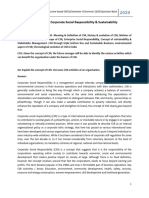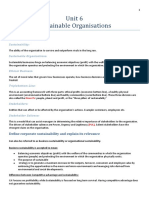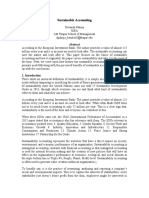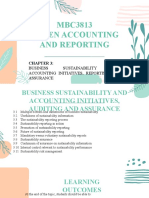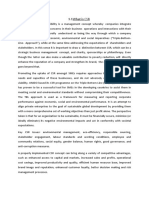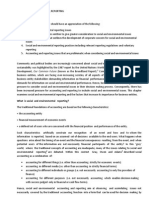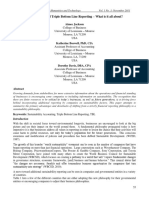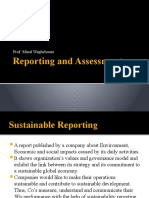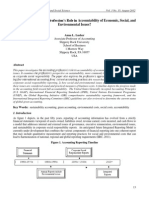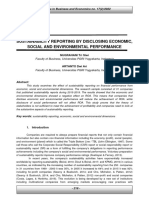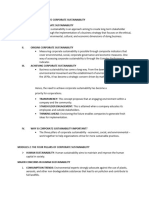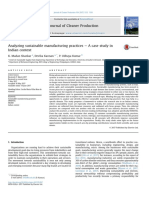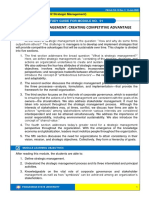0% found this document useful (0 votes)
45 views3 pagesSustainability-: Corporate Sustainability Refers To Business Strategies Which Helps To Generate
Corporate social responsibility refers to companies behaving ethically and responsibly towards stakeholders like shareholders, employees, and the government. It focuses on economic, environmental, and social responsibility. Many companies now adopt sustainability reporting using frameworks like the Global Reporting Initiative or measuring their triple bottom line of economic, environmental, and social impacts. Measuring sustainability performance considers financial, environmental, health and safety aspects. It helps companies identify long-term value creation opportunities while managing risks to build stable business relations with key stakeholders.
Uploaded by
Sujan SilwalCopyright
© © All Rights Reserved
We take content rights seriously. If you suspect this is your content, claim it here.
Available Formats
Download as DOCX, PDF, TXT or read online on Scribd
0% found this document useful (0 votes)
45 views3 pagesSustainability-: Corporate Sustainability Refers To Business Strategies Which Helps To Generate
Corporate social responsibility refers to companies behaving ethically and responsibly towards stakeholders like shareholders, employees, and the government. It focuses on economic, environmental, and social responsibility. Many companies now adopt sustainability reporting using frameworks like the Global Reporting Initiative or measuring their triple bottom line of economic, environmental, and social impacts. Measuring sustainability performance considers financial, environmental, health and safety aspects. It helps companies identify long-term value creation opportunities while managing risks to build stable business relations with key stakeholders.
Uploaded by
Sujan SilwalCopyright
© © All Rights Reserved
We take content rights seriously. If you suspect this is your content, claim it here.
Available Formats
Download as DOCX, PDF, TXT or read online on Scribd
/ 3


